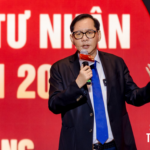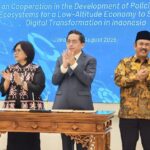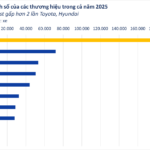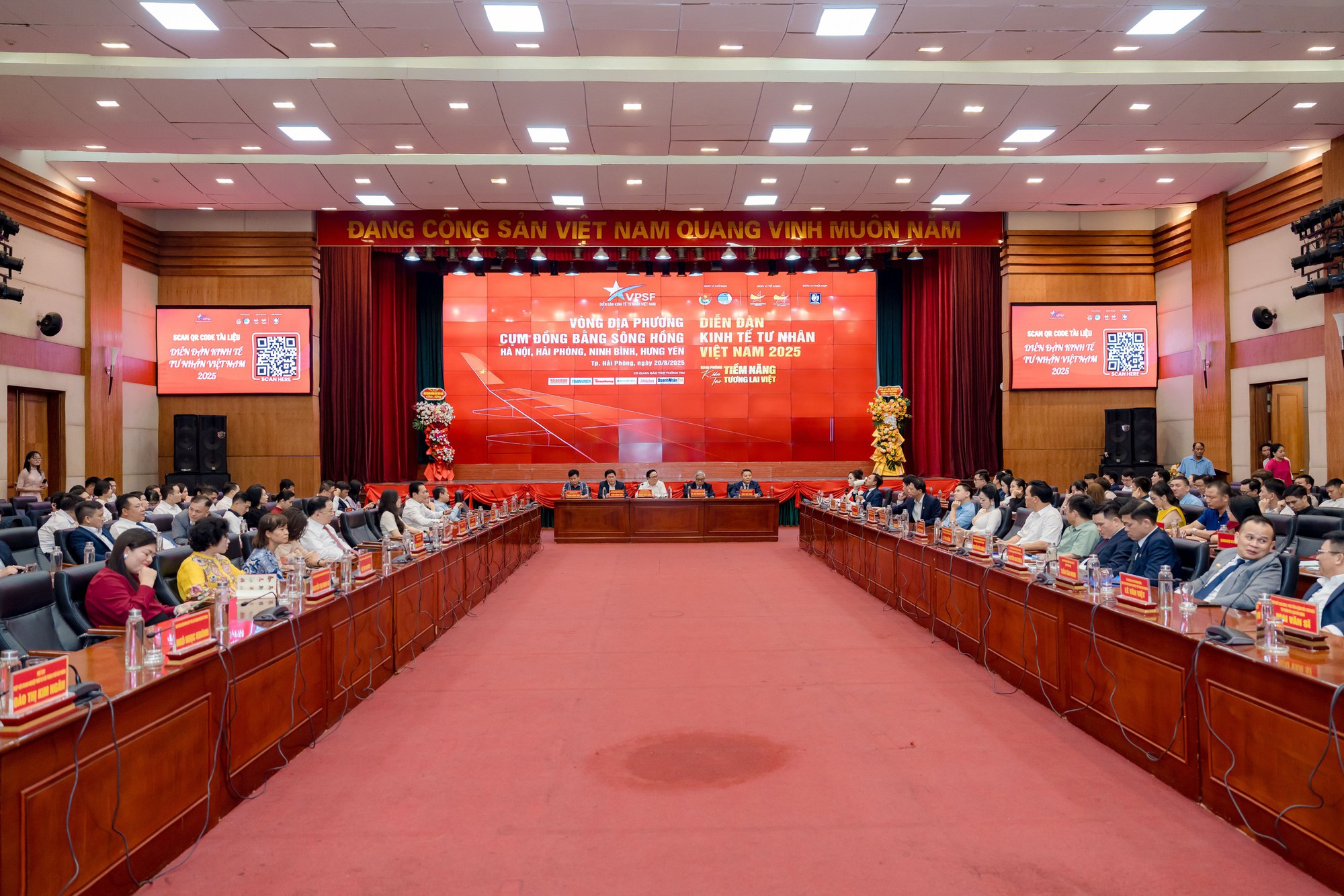
On August 20th, the Vietnam Private Sector Economic Forum 2025 (VPSF 2025) continued with its eighth local dialogue session in the Red River Delta cluster, held in Hai Phong city. VPSF 2025 is chaired by the Vietnam Young Entrepreneurs Association.
Speaking at the conference, Mr. Bui Duc Huy, Standing Member of the Executive Committee and Head of Finance of the Hai Phong Young Businesspeople Association, and Director of Tan Thuan Phong Co. Ltd., shared that family enterprises are a “special cell” in Vietnam’s economy. Currently, over 70% of family businesses contribute significantly to the country’s GDP and create millions of jobs.
However, Mr. Huy pointed out that the weakness of family enterprises lies in their decision-making process, which is often concentrated and highly flexible but may lack transparency. This is because they usually start as small businesses relying on self-funded capital and the trust of family members.
Many family businesses have successfully adopted digital transformation models, such as TikTok Shop, tripling or even increasing their revenue tenfold within a few months. However, when implementing digital transformation, they are often concerned about the costs and, more importantly, fear transparency. In some cases, they unintentionally engage in opaque practices, which can lead to legal risks and tax evasion.
Regarding Resolution 59 on Integration and Inward Internationalization, Mr. Huy emphasized that it presents a significant opportunity for traditional family products, from coffee and rice to ceramics and textiles, to enter the global market. Several Vietnamese businesses have already made their mark globally, including May 10, a family-run garment factory that has become a recognized brand in Europe and the US. Other notable examples include leading companies such as Trung Nguyen Coffee and VinGroup.
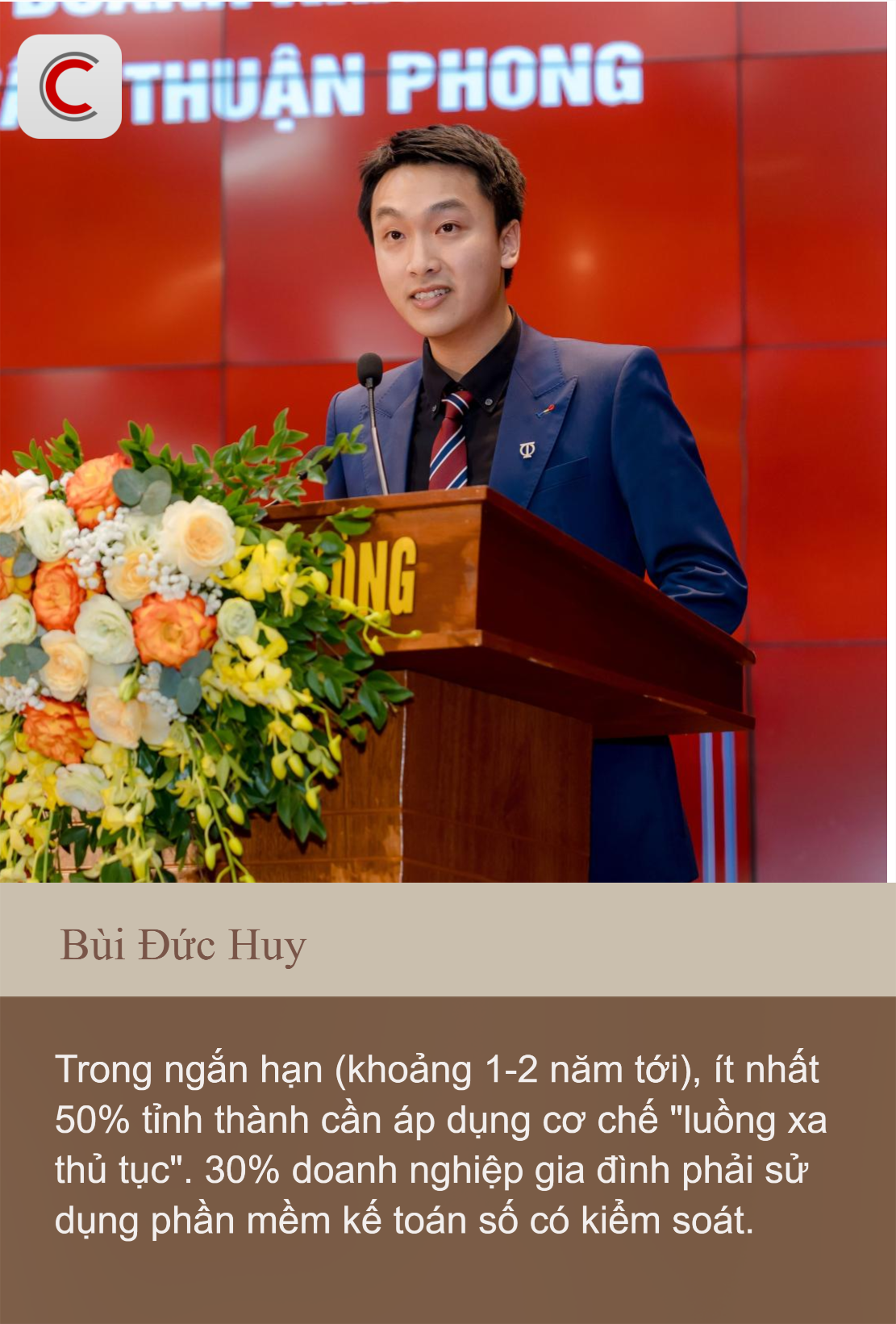
Mr. Huy cited international experiences in supporting the development of family businesses. In Germany, the “Mittelstand” model, which refers to small and medium-sized enterprises (SMEs) that play a crucial role in the economy, has thrived, with 90% of these businesses being family-owned. Through transparent governance and significant investments in research and development, they have become a pillar of high-tech exports.
In South Korea, conglomerates like Samsung and Hyundai, which also originated from family businesses, received continuous support from the government and have since become global powerhouses. Similarly, in Italy, renowned brands such as Gucci, Prada, and Ferrari have maintained their family-oriented essence while internationalizing their governance and building globally recognized brands.
Mr. Huy believes that the key takeaway for Vietnam is that family enterprises can retain their national identity but must professionalize to compete internationally. He emphasized, “The state needs to pave the way by ensuring transparent laws, providing capital support, training human resources, and stimulating the market. Family businesses, on the other hand, need to embrace transparency, innovation, and bold thinking. If we can achieve this, I firmly believe that in the next decade, Vietnam will be home to ‘Samsung Vietnam’, ‘Gucci Vietnam’, ‘Prada Vietnam’, ‘Mittelstand Vietnam’, and many more.”
In the short term (within 1-2 years), Mr. Huy proposed that at least 50% of provinces and cities should implement a “green channel procedure” mechanism. Additionally, 30% of family businesses should adopt controlled digital accounting software.
For the medium term (3-5 years), the goals are to have 30% of exporting businesses obtain ESG/ISRIS certification and 50% of businesses allocate a minimum of 1% of their revenue to research and development (R&D).
Looking towards the long term (5-10 years), he suggested that the state should establish integration support funds for businesses and subsidize 50-70% of certification costs. Additionally, to encourage transparency, the state should provide partial subsidies for certification costs, reduce trademark registration fees, and offer accounting and auditing vouchers.
Mr. Tran Le Nguyen: Kido Harnesses the Power of AI for Round-the-Clock Sales, Transcending the Need for KOLs and KOCs
“The leadership at Kido Group attests to the power of their digital transformation strategies, claiming a remarkable 70% savings in time and costs compared to traditional sales and marketing methods. This forward-thinking company is revolutionizing the industry with its innovative approach, harnessing the potential of technology to streamline processes and achieve unprecedented efficiency.”
The Rise of Retail and Green Banks: OCB Embraces Digital Transformation, Betting Big on Open Banking
At OCB, the strategy of prioritizing retail and green growth is translating into tangible results in operations and business performance. This approach not only drives the bank’s success but also enables it to make significant contributions to society and the national budget.
“Registering Your Land: A Guide for Those With Ineligible Red Book Requirements”
“Mr. Nguyen Bao Trung, Deputy Director of the Department of Digital Transformation and Environmental Resource Data Information, revealed that the Ministry of Natural Resources and Environment is moving towards allowing registration of land information even for land that does not yet meet the requirements for certification.”

